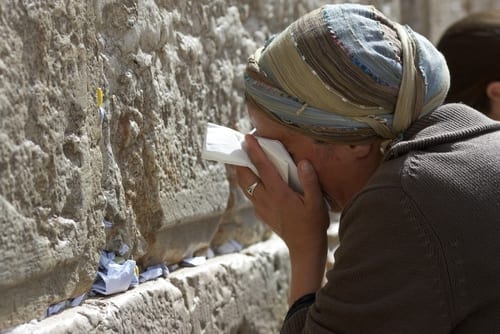- Throughout the Aseres Yemei Teshuvah we say המלך הקדוש instead of הקל הקדוש at the end of the third brachah of the Shemone Esrei. Additionally, we say המלך המשפט instead of מלך אוהב צדקה ומשפט. The reason we emphasize G-d’s Malchut (His Kingship) is because on these days G-d shows his sovereignty in judging the world. We also make additions beginning זכרנו לחיים, מי כמוך and בספר חיים.
- If he mistakenly said “הקל הקדוש”, or if he is unsure if he said that instead of “המלך הקדוש,” he must start the Shemone Esrei again from the beginning. However, if he realizes his mistake very quickly and has yet to begin the next brachah then he should say “המלך הקדוש” and he does not have to start the Tefillah again. Here ‘very quickly’ is defined as תוך כדי דיבור – if he realizes his mistake within the time it would take to say “Shalom Aleicha Rebbi” then he can correct it without it having to start again. (Similarly, if the Chazzan said הקל הקדוש he has to start again, and he even repeats Kedushah.)
- The Poskim debate whether a person who said מלך אוהב צדקה ומשפט instead of המלך המשפט has to repeat the brachah, but the minhag is not to repeat it since he has anyway mentioned the word Melech in the brachah.
- If he forgot to say זכרנו לחיים, or מי כמוך, or בספר חיים and does not realize before he has said ברוך אתה ה' at the close of the brachah he should continue to finish the brachah as normal since he has already said Hashem’s Name.
- On Rosh Hashana and Yom Kippur, if he knows that he said the middle brachos as they appear in the Machzor, such as ובכן יתקדש, but is unsure if he said המלך הקדוש, he does not need to repeat anything because he most probably finished the brachah in the right way following the Machzor’s text.
Tags
Elul Jewish Law Repentance0 9 1 minute read





